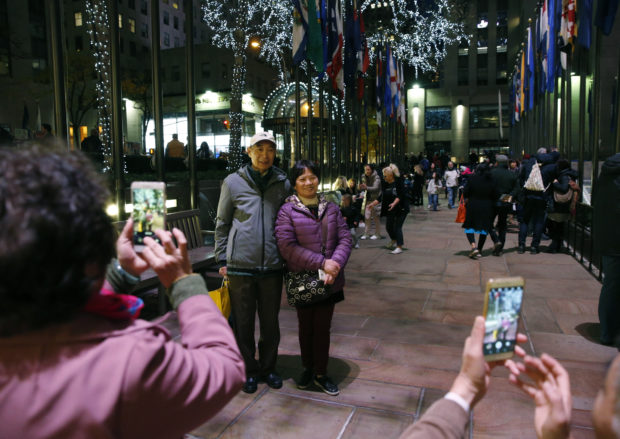Chinese tourism to US drops for 1st time in 15 years

Credit to Author: ggaviola| Date: Tue, 28 May 2019 06:05:16 +0000
After more than a decade of rapid growth, Chinese travel to the U.S. is falling. And that has cities, malls and other tourist spots scrambling to reverse the trend.
Travel from China to the U.S. fell 5.7% in 2018 to 2.9 million visitors, according to the National Travel and Tourism Office, which collects data from U.S. Customs forms. It was the first time since 2003 that Chinese travel to the U.S. slipped from the prior year.
Friction between the U.S. and China is one reason for the slowdown.
The Trump administration first imposed tariffs on Chinese solar panels and washing machines in January 2018, and the trade war has escalated from there.
The U.S. now has a 25% tariff on $200 billion worth of Chinese imports, while China has retaliated with tariffs on $60 billion of U.S. imports.
Last summer, China issued a travel warning for the U.S., telling its citizens to beware of shootings, robberies and high costs for medical care. The U.S. shot back with its own warning about travel to China.
Wang Haixia, who works at an international trade company in Beijing, traveled to the U.S. in May for her sister’s graduation. She and her family planned to spend 10 days in Illinois and New York.
Wang says she might have stayed longer but doesn’t want to contribute to the U.S. economy amid the trade war.
“I cannot cancel this trip because I promised my sister I would go to her commencement,” she said. “My relatives will contribute more than 100,000 yuan to America just staying for 10 days, and that’s enough.”
There are other reasons behind the slowdown. Economic uncertainty in China has travelers at the lower end of the market vacationing closer to home, says Wolfgang Georg Arlt, director of the Chinese Outbound Tourism Research Institute, which found that 56% of travelers leaving China in the last three months of 2018 went to Hong Kong, Macau or Taiwan compared with 50% in 2017. Those who do travel farther are seeking out more exotic destinations like Croatia, Morocco and Nepal.
Chinese travel to the U.S. had already been moderating from its breakneck pace earlier this decade. In 2000, 249,000 Chinese visited the U.S.
That tripled to 802,000 by 2010, then tripled again by 2015, in part because of higher incomes, better long-haul flight connections and an easing of visa restrictions, according to McKinsey, the consulting firm.
The U.S. welcomed more than 3 million Chinese visitors in 2016 and 2017. But year-over-year growth edged up just 4% in 2017, the slowest pace in more than a decade.
Most industry-watchers agree that any downturn is temporary, since China’s middle class will only continue to expand. The U.S. government forecasts Chinese tourism will grow 2% this year to 3.3 million visitors, and will reach 4.1 million visitors in 2023.
“Even if the Chinese economy cools, it’s still going to continue to be a very good source of growth for the travel industry,” said David Huether, senior vice president of research for the U.S. Travel Association.
In general, international travel to the U.S. has been declining. Overall data for 2018 hasn’t been released yet, but international travel fell 2% in 2016 and was flat in 2017.
But because China commands some of the highest tourism traffic to the U.S., any falloff will be felt by destinations that have come to rely on Chinese spending power.
In 2017, the country had the fifth highest number of U.S.-bound tourists, behind Canada, Mexico, the United Kingdom and Japan. Ten years earlier, China wasn’t even on the top 10 list, falling behind countries like Germany, France, South Korea and Australia, according to the National Travel and Tourism Office.
China didn’t crack the top 10 list until 2011 and has been climbing ever since. Spending by Chinese visitors — which doesn’t include students — ballooned more than 600% between 2008 and 2016, to nearly $18.9 billion. In 2017, that fell by 1% to $18.8 billion, or about 12% of overall tourism spending.
To hold onto those dollars, experts say the tourism industry must do more to keep up with Chinese travelers and their changing needs. /gg